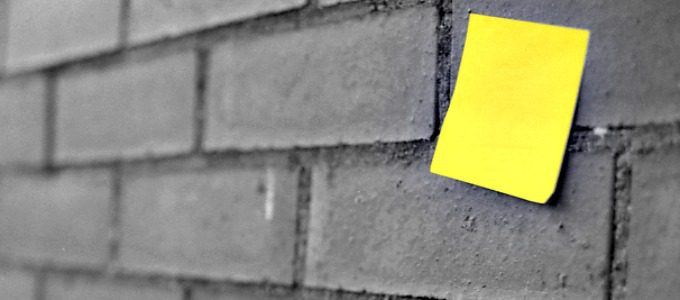
For chief learning officers, helping others achieve their goals stretches far past the popular New Year's activity.
by Mike Prokopeak
December 14, 2015
I don’t do New Year’s resolutions.
That’s not to say that I don’t have goals. One day, I aim to read all of the nearly 1,500 pages of “War and Peace” as well as the many other volumes collecting dust on my bookshelves.
I’d also like to add a few new skills and additional knowledge. Boosting my high school Spanish beyond the ability to ask where the bathroom is as well as learning the ins and outs of economics are top of the list. If time permits, an MBA would be good.
My avoidance of resolutions doesn’t mean I’m not in dire need of improvement either. I could stand to forgo a cookie or two and get more organized as well. Going for a daily run, practicing yoga and meditating regularly are additional to-dos.
In fact, if all goes to plan, I’ll be the most well-read, versatile, multilingual, Zen-like person with six-pack abs you’ll ever meet. But in reality, this time next year I’ll be the slightly older, mildly healthier but by-and-large the same moderately literate person with the consistently cluttered inbox and inexorably expanding midsection.
That reality is part of my skepticism about New Year’s resolutions. The evidence of success is slim, unlike my growing waistline. Nearly half of us regularly make a yearly resolution but only 8 percent actually keep them, according to a University of Scranton study published in the Journal of Clinical Psychology.
Most resolutions fade even before the end of January. Newly bought gym memberships go unused, diet and exercise fall prey to the predatory cookie, organizational habits get lost in the clutter. What begins as a commitment rarely makes it to full-blown habit.
New Year’s resolutions are also desperate. It always struck me as strange that we wait until one particular day to make a healthy lifestyle change, whether it’s as simple as forgoing the midafternoon cookie or something more challenging like, say, cutting the Kardashians from your media diet.
If something is so important to deserve a resolution, why wait to do it? If you want to reconnect with old friends, do it now. It’s not like there’s a shortage of ways to get in touch. If you want to share your knowledge or expertise, start a blog. Now. No need to wait.
It’s not like the end of the year rolls around and the realization suddenly dawns as we once again swing open the freezer door, “You know, maybe this bowl of ice cream drowned in a pool of chocolate isn’t the best choice for my health.” I don’t know about you but I’ve known that all along.
Resolutions are really about reinvention. And reinvention is hard. It takes real work to shed bad habits and old ways of thinking in the ongoing quest to be better. That’s why I’m so impressed by people who make reinvention a lifelong habit.
Take the example of former president Jimmy Carter. He’s been a naval officer, peanut farmer, businessman, state governor, national leader, Nobel prizewinner and global humanitarian. At 91, he still teaches Sunday school at his home church in Plains, Georgia, despite ongoing treatment for cancer in his brain and liver.
In business, restless Silicon Valley figures like Tesla boss Elon Musk are constantly testing new ideas and launching new ventures. In his case, elegant and powerful electric cars and commercial space flight are some of the results.
Then there’s Prince. Four decades after his debut, the multi-Grammy winner is still writing songs, making music and spreading the gospel of purple. He’s sold more than 100 million records over his career and with his 38th album released last September, that number is set to go even higher.
Those kind of lifelong records of achievement only come from a consistent process of reinvention, a constantly moving flywheel of goals, experiments and lessons learned. While I can’t be Prince, I can learn from the examples of high achievers like him. Reinvention is not a once-a-year activity. It’s a daily slog requiring persistence, hard work and action. Resolution is only a necessary first step.
That’s what is so exciting about the work of chief learning officers. You play a pivotal role in helping others set clear goals. But more importantly, you commit to help people take the unglamorous steps along the way to make transformation happen.
Now that’s a resolution I can believe in.




